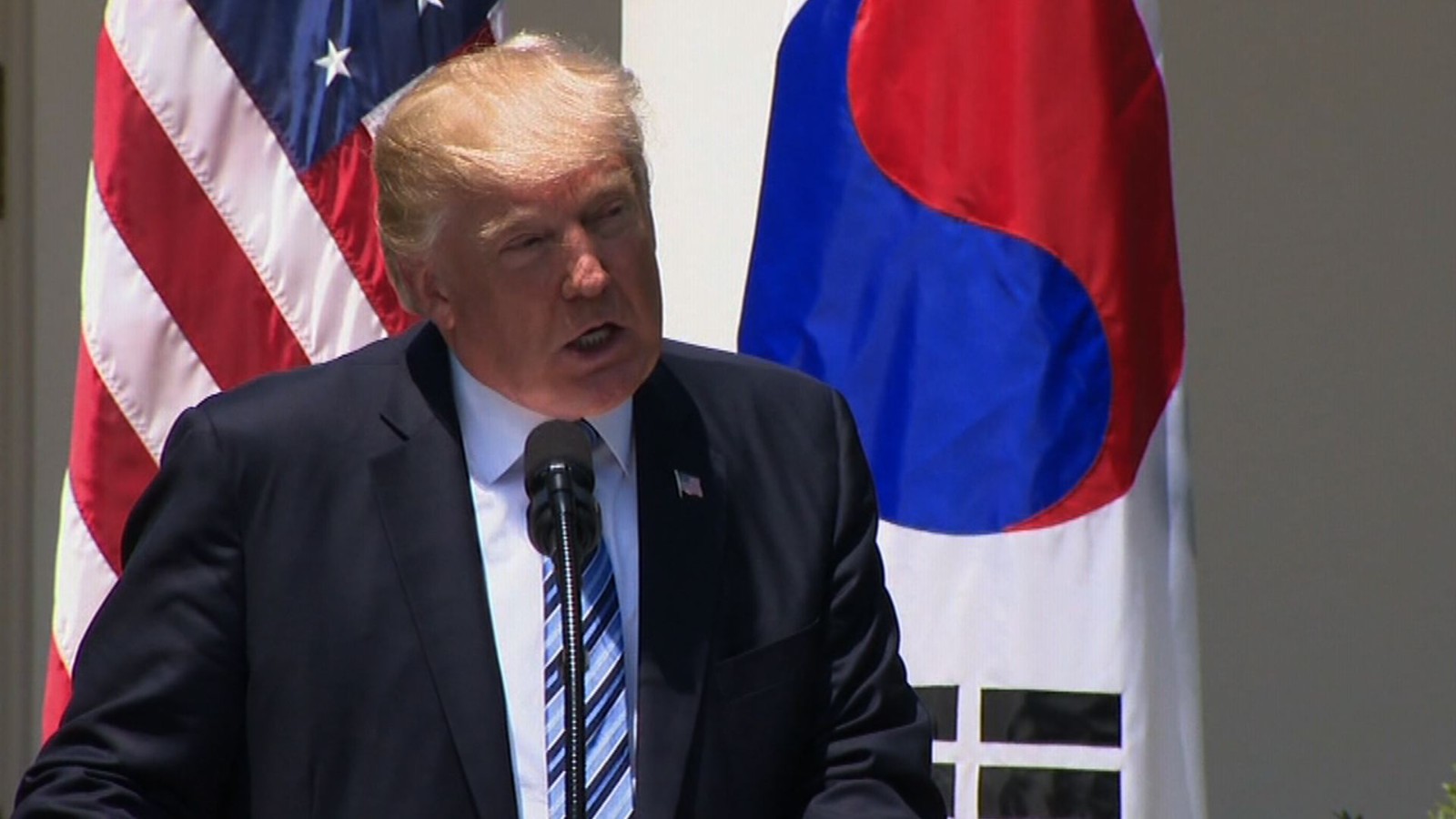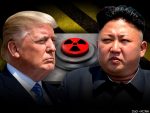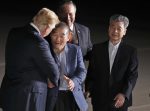Tensions between North Korea and the United States have escalated once again, but this time it seems they’re about to explode.
Threatening rhetoric, which erupted after the U.S. passed new sanctions on North Korea following the communist country’s continued efforts to improve their nuclear-weapon capabilities, is renewing the possibility of nuclear conflict. Kim Jong-un, North Korea’s “supreme leader,” initially threatened attacking the U.S. territory of Guam. Jong-un has since “paused” the plan, but says he could change his mind.
Since North Korea threatens the U.S. regularly, but it normally gets disregarded as empty rhetoric, why are these recent threats being taken more seriously than the previous ones? There are several reasons.
First, Trump’s response was candid, to say the least. Former President Barack Obama’s responses to North Korean threats were always reiterating the practice of “strategic patience,” or avoiding confrontation; Trump, on the other hand, explicitly promised violence. Obama’s aim was pressuring surrounding countries, namely China, to curb the rogue nation’s nuclear advancements.
Under Obama, negotiations between North Korea and the U.S. were nearly nonexistent, and any potential threats were subdued through covert operations. Trump’s response embodies a more traditional form of retaliation, as the “fire and fury” he threatened against North Korea brings to mind a more familiar vision of war, one more visceral to the average person than disarming regimes via cyberattack.
Second, the U.S. now has an unpredictable president with the world’s strongest military. As seen this past April when he ordered a military strike on an airbase in Syria, Trump has no qualms putting the U.S. military to use. Whatever your opinions are on his use of military force in Syria, there is a pretty standard line for American presidents dealing with North Korean megalomaniacs, and much of the fear surrounding the exchange between Trump and Jong-un centers around the fact that the president may break from the standard pattern.
In 2012, for example, the U.S. gave food aid to North Korea on the condition that they would stop building their nuclear program and submit to surveillance. These negotiations broke within a few weeks, after North Korea tested a missile and attempted to cover up the practice run as a satellite. Similar exchanges occurred under the presidencies of Bill Clinton and George W. Bush too, and with largely the same results: The reigning Pyongyang dictator spouts off a few empty threats, and then everything returns to business as usual.
Obviously, this scenario is more ideal than realistic. Truth is, Trump could refuse these exchanges and throw the country into war, nuclear or otherwise. If anything has been made apparent since his election, it’s that Trump is more motivated by a desire to disprove those who criticize him than by accomplishing long-term policy goals or putting the best interests of the country first. Jong-un beat his chest to Obama with no luck, but Trump returning the behavior is unnerving.
So, why should the U.S. take North Korea seriously when our president is more likely to order a strike before Jong-un does? Well, that’s the point.
The U.S. should have been taking North Korea seriously years ago, on the off chance that the country would come under the leadership of a president with no regard for the consequences of using nuclear weapons.
The “strategic patience” initiative didn’t work, but having a hand on the red button isn’t going to either. The concern now is not when North Korea uses their nuclear weapons, but when they’ll inadvertently convince Trump that they pose an imminent threat and he preemptively strikes.
Jong-un is responding to Trump’s off-the-cuff response by falling back, as evidenced by him reneging on his threat to attack Guam. Jong-un sees there’s no room for negotiation, as of now, and won’t push any further. Trump will likely fold and begin more doomed-from-the-start exchange programs later on. But, with his remaining war-hungry base and constituents, Trump feels pressure to strike from both sides.
The situation is surreal, and you can’t help but question whether or not North Korea has any desire to use nuclear weapons against the U.S. at all. Jong-un knows he’s out-gunned, but a single nuclear missile can do generations worth of damage, and he knows that, too. What the U.S. does not have on North Korea is its brazenness; that is, until Trump came with his “fire and fury.”
The response caught Jong-un off-guard and may have exposed that the dictator’s nuclear threats are another front, like most of North Korea’s society. This is speculative, sure, but if North Korea’s threats are just thinly veiled attempts to receive aid through strong-arming the U.S., then any military action would be entirely out of fear, and we got conned into thinking a threat existed in the first place.
Threats will come from both countries, but the U.S. needs to be more prompt and concise in their responding. Our current president can’t respond accordingly, so the responsibility will fall on American citizens. Because of the hell Charlottesville, North Carolina, went through this week, and the subsequent responses from President Trump, the tensions between North Korea and the U.S. have fallen off the news cycle just as quickly as they jumped on.
But these tensions haven’t gone away, and Americans need to pay attention to North Korea’s threats for longer than twenty-four hours. The world needs a renewed discussion on the danger of nuclear weapons, not just an argument on whether or not we should use them if someone else does.

















